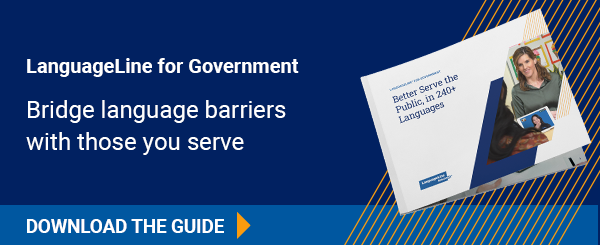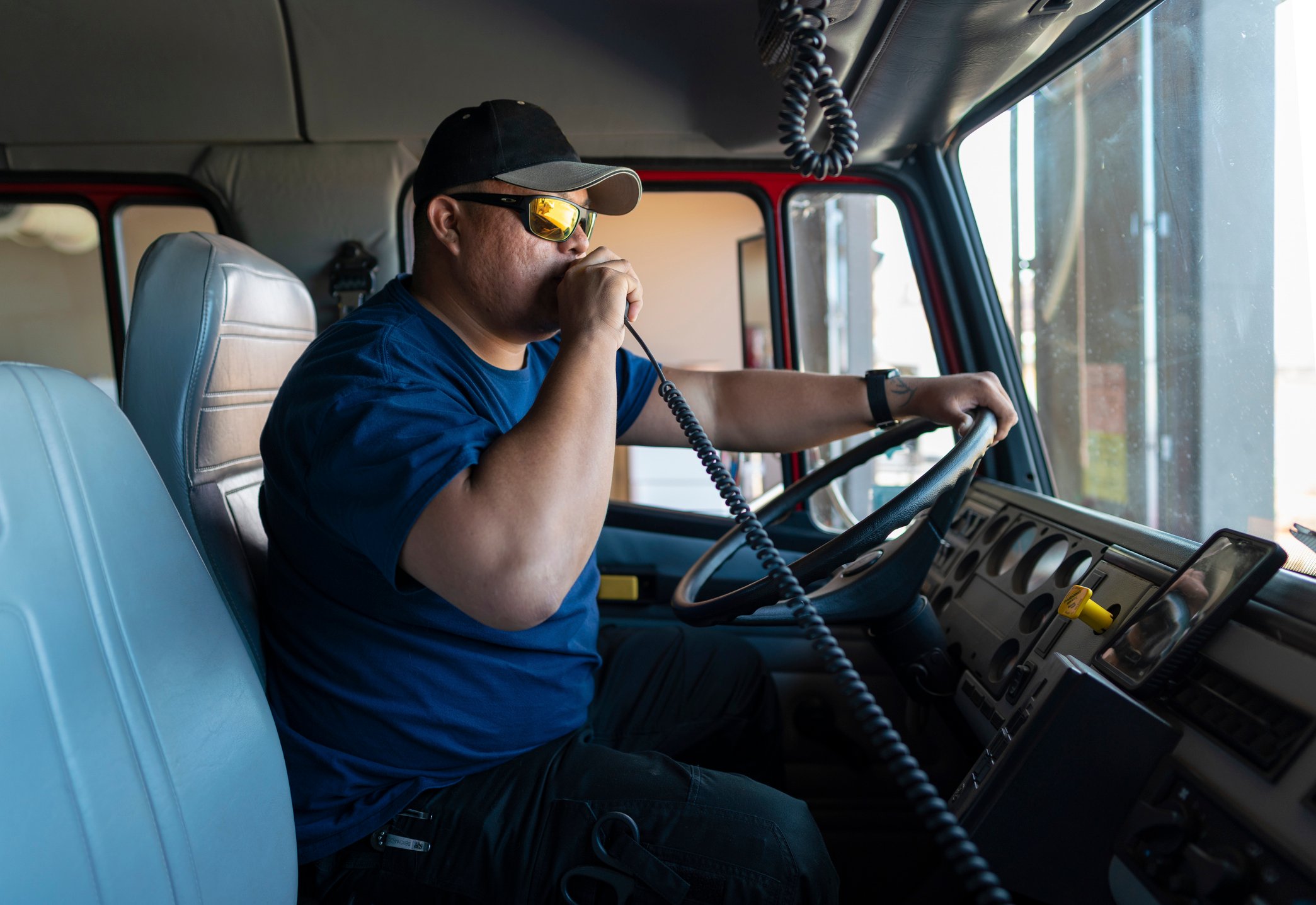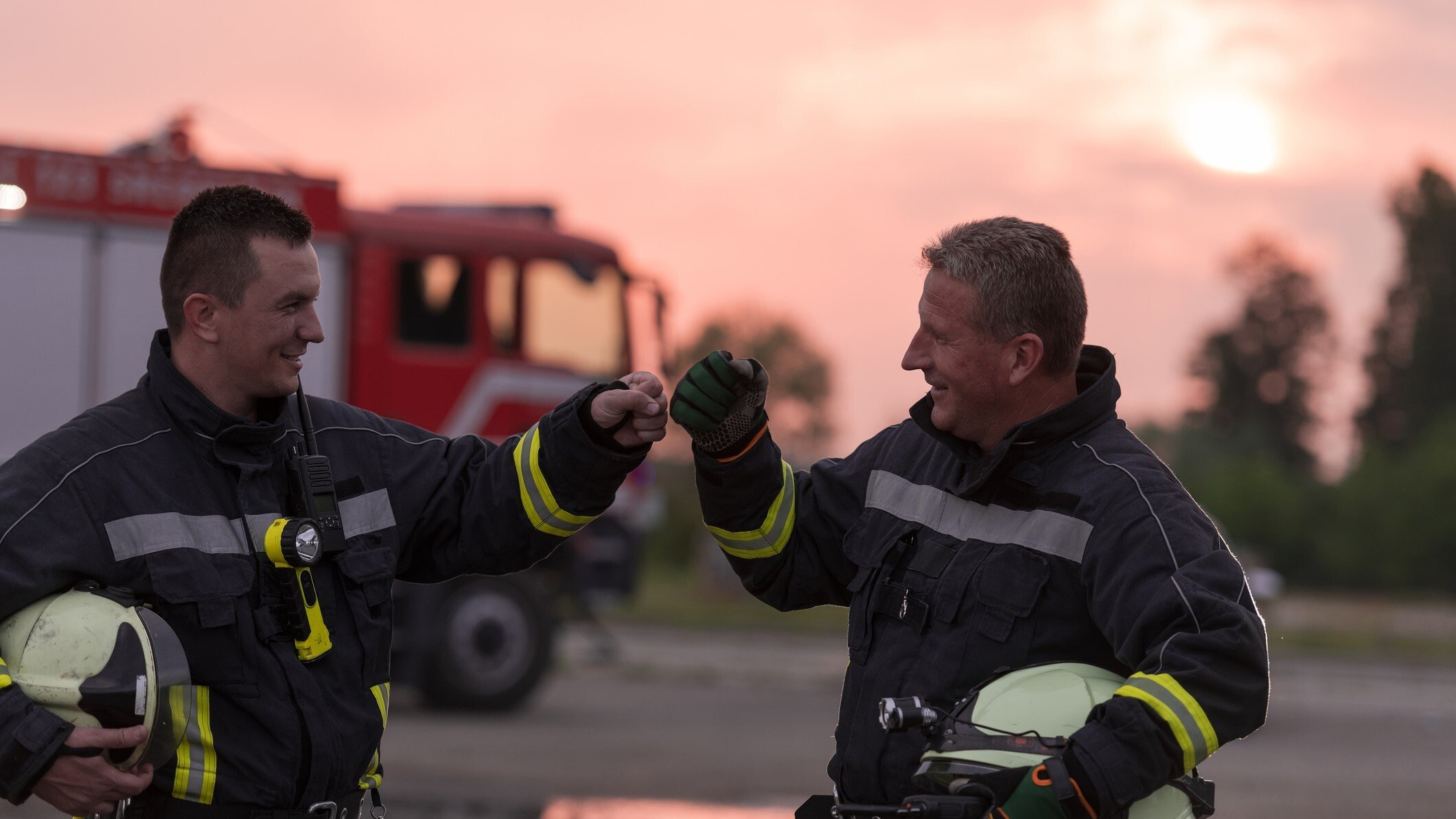
Stanislaus County, a diverse community in California's Central Valley, faces a unique challenge: ensuring equal access to legal resources for a population speaking a variety of languages. With about 8% of households having limited English proficiency, the need for effective language support in the courthouse is crucial.
For community members who primarily speak languages other than English, navigating legal proceedings can be overwhelming without clear, accessible information in their language.
The Superior Court of California in Stanislaus County sought a solution to empower non-English speakers and offer equitable access to justice. Their goal was ambitious: to create a multilingual experience that integrates technology with human interpretation for nuanced, accurate assistance within the courthouse.
Enter Advanced Robot Solutions (ARS) and LanguageLine, two pioneers joining forces to make this vision a reality.
The Challenge: Breaking Language Barriers with Technology
The court wanted a solution that could be accessible 24/7 and readily available without delays. Recognizing that some individuals may only need simple guidance to access forms, directions or information about legal proceedings, the court desired an interactive, self-service solution. The court also wanted the ability to escalate to a live audio or video interpreter on-demand when necessary, directly from the kiosk.
The aim was not only to reduce the strain on courthouse staff but also to provide a level of autonomy for non-English-speaking visitors, empowering them to interact with the court independently using seamless access to language support with the touch of a button.
The Solution: A.I.-Powered Multilingual Kiosks
ARS Connect, an advanced conversational A.I. solution, was the answer. Deployed in key locations across the courthouse, including the Family Law Center, ARS Connect kiosks serve as the first point of interaction for non-English-speaking individuals. Through intuitive voice or text-based commands in multiple languages, users can select their preferred language and access a wealth of legal resources.
The A.I.-powered kiosks handle routine queries and provide information about legal processes such as orders of protection, small claims, and traffic violations.
With a large and vibrant crisp video display, the kiosks enable users to receive accurate, real-time answers and guidance on forms, hearing schedules, and other court-related inquiries. Limited English speakers can interact without needing to navigate complex menus or worry about phrasing questions precisely and be able to interact with the system in their preferred language.
LanguageLine’s Role: A Human Touch in a Digital World
While the kiosks effectively address many routine inquiries, some legal matters require a level of nuance and clarity that only a live professionally trained interpreter can provide. ARS and LanguageLine are currently developing the following solution:
When a user encounters a question that goes beyond the kiosk’s capabilities, users will be able to connect to a live audio and video LanguageLine interpreter with the push of a button to bridge the language gap whenever the need arises.
Once connected, LanguageLine interpreters can support users and agents in more than 240 languages, including American Sign Language and British Sign Language, through video or audio-only formats. This seamless integration will ensure that, even in sensitive cases where legal terms may be unfamiliar or difficult to understand, LanguageLine interpreters provide clear, accurate guidance and allow users to fully comprehend legal procedures in their preferred language.
The result will be an experience that’s both technologically advanced and deeply human.
“ARS is incredibly proud to partner with LanguageLine in delivering a comprehensive language solution for the people of Stanislaus County,” ARS CEO Paul McManus said. “By combining our AI-powered kiosks with LanguageLine's expertise in interpretation services, we’re breaking down barriers and ensuring equal access to justice for all residents, regardless of their primary language.”
Benefits: Greater Access and Efficiency in Justice
Since the kiosks were introduced in January 2024, they have facilitated over 9,000 sessions, streamlining courthouse operations and empowering residents to navigate legal information independently. Non-English speakers in Stanislaus County can now access the same resources as English speakers, without delay, confusion, or the risk of misinterpretation.
The languages most frequently requested at the kiosks thus far have been Spanish, Mandarin, Punjabi, and Assyrian.
This system also reduces the workload on courthouse staff, who can now focus on high-priority cases and complex inquiries that require specialized attention. The kiosks' efficiency has allowed the courthouse to allocate resources more effectively, ensuring that every visitor receives timely and accurate assistance.
With promising results already seen in Stanislaus County, ARS and LanguageLine have set their sights on expanding access. Potential next steps include extending kiosk locations to high-traffic public spaces like airports, libraries, and healthcare facilities as well as developing new features such as remote jury check-ins for expanded support options within a court setting.
Let’s Talk Solutions
The partnership between ARS and LanguageLine in Stanislaus County has set a new standard for language access in the justice system. As the community continues to engage with the A.I.-powered kiosks, the courthouse is on its way to creating a more inclusive environment for all.
This collaboration demonstrates how cutting-edge technology, combined with human expertise, can create inclusive, accessible spaces in public service. If your organization is facing similar challenges or looking to expand access through multilingual solutions, we’re here to help.
Please contact us today to learn more about how LanguageLine’s comprehensive language access solutions can empower your organization to serve all members of your community. Together, we can build a more connected, inclusive world—one conversation at a time.





